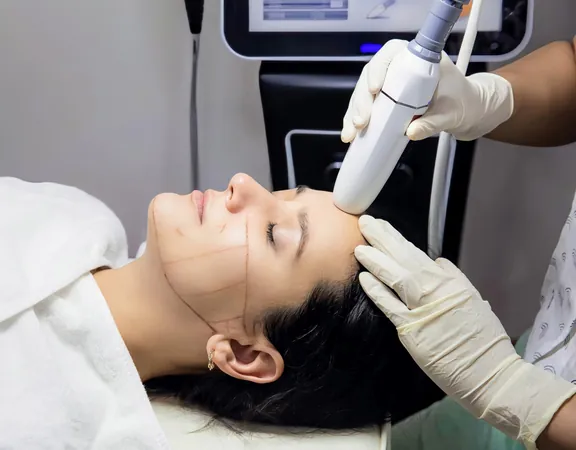
Revolutionary Ultrasound Therapy Could Be the Key to Overcoming Drug Addiction
2024-11-01
Author: Nur
Harnessing Ultrasound for Treatment
The innovative team is developing a specialized helmet that emits high-frequency ultrasound waves, targeting the nucleus accumbens—a critical area in the brain linked to reward and motivation, which plays a vital role in addiction. By vibrating the cell membranes in this region, the treatment aims to disrupt the harmful feedback loop that perpetuates substance abuse.
Groundbreaking Trials Show Promise
The initial phases of this research involve real human experimentation. In a recent trial, a volunteer with a 20-year history of heroin and methamphetamine abuse underwent the ultrasound treatment while being shown images of heroin being prepared. Remarkably, the participant reported a significant reduction in cravings following the procedure, claiming he felt indifferent toward drugs for the first time in years.
Understanding the Bigger Picture
While these early results are encouraging, experts emphasize that ultrasound therapy is not a panacea. Addiction is multifaceted, often stemming from emotional challenges and stressors that need to be addressed through therapy and other coping mechanisms. Dr. James Mahoney from RNI warned, “If we eliminate cravings without tackling the underlying issues, relapse is likely.”
A Broader Context of Addiction
The urgency behind this research is palpable, as addiction continues to plague millions. Current statistics highlight the gravity of the situation: over 100,000 people die annually from drug overdoses. Approximately 2.7 million Americans aged 12 and older suffer from opioid addiction, while nearly 29 million struggle with alcohol abuse. Traditional treatments hinge on medication to alleviate cravings, yet they do not fully confront the root causes of addiction.
Pioneering a New Path Forward
Ultrasound therapy aims to not only suppress cravings but also reshape the brain's response to addiction. By focusing on the physical alterations in the reward circuitry of the brain, this therapy offers hope for a more effective and holistic approach to recovery. Early trials with more patients are in the pipeline, along with collaborative efforts with institutions like Weill Cornell Medicine and the University of Maryland.
Hope for the Future
The potential impact of this pioneering treatment could be revolutionary in the fight against addiction. With continued research and clinical trials, RNI is optimistic that personalized coping strategies paired with ultrasound therapy could empower individuals to regain control over their lives. The vision is clear: a future where those affected by addiction can look forward to sustainable recovery and a life free from substance dependence.
Stay tuned as the developments in this groundbreaking research unfold, potentially paving the way for an effective alternative to traditional addiction treatments.




 Brasil (PT)
Brasil (PT)
 Canada (EN)
Canada (EN)
 Chile (ES)
Chile (ES)
 España (ES)
España (ES)
 France (FR)
France (FR)
 Hong Kong (EN)
Hong Kong (EN)
 Italia (IT)
Italia (IT)
 日本 (JA)
日本 (JA)
 Magyarország (HU)
Magyarország (HU)
 Norge (NO)
Norge (NO)
 Polska (PL)
Polska (PL)
 Schweiz (DE)
Schweiz (DE)
 Singapore (EN)
Singapore (EN)
 Sverige (SV)
Sverige (SV)
 Suomi (FI)
Suomi (FI)
 Türkiye (TR)
Türkiye (TR)